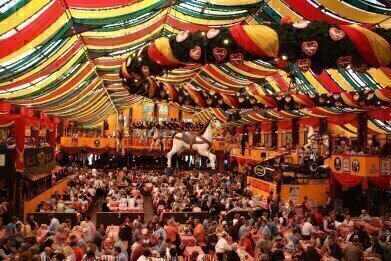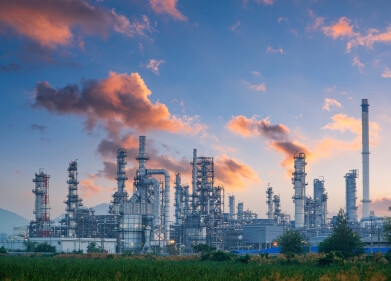Air Monitoring
Why Oktoberfest Is Bad for the Environment
Nov 10 2019
Attracting more than six million visitors over a 16-day period, Oktoberfest is one of the largest folk festivals in the world and has become synonymous with German culture, especially that found in its south-eastern province of Bavaria. But while festival goers are more preoccupied with beer, pretzels and currywurst than environmental concerns, a new study has revealed the extent of its impact.
Conducted by researchers from the Technical University of Munich (TUM), the investigation sought to quantify concentrations of methane around the festival site throughout its duration. To their surprise and alarm, the authors of the paper found that Oktoberfest released a cumulative 1,500kg of methane over the event, which is roughly equivalent to 10 times the amount that the city of Boston in Massachusetts produced over the same period.
A global gathering
Running over late September and early October, Oktoberfest sees in excess of six million revellers, who annually consume seven million litres of beer, 100,000 litres of wine and just 1.1 million litres of water and lemonade. Crucially, they also eat half a million chickens and approximately a quarter of a million pork sausages, adding up to one heck of a party.
However, the environmental impacts of all this decadence are rarely considered. Led by chief researcher Jia Chen, the team from TUM walked and cycled around the perimeter of the festival carrying sophisticated monitoring technology to measure atmospheric methane concentrations in the area (they were prohibited from taking their equipment into the festival on grounds of safety).
An excess of hot air
The results demonstrated that Oktoberfest 2019 was responsible for the emission of approximately 1,500kg of methane. For context, that’s 10 times the amount that was produced by the city of Boston during the same time period, which is itself one of the most populous urban epicentres in the United States.
The authors of the study said that while up to 10% of that figure could be attributed to biogenic sources (i.e. flatulence and burping of festival-goers), the vast majority must have come from other places. “We have strong indications that fossil fuel methane emissions by gas grills and heating appliances are major sources,” explained Chen.
Monitoring methane
Methane is second only to carbon dioxide in terms of being the most common greenhouse gas (GHG) in our atmosphere. But while methane has a far shorter lifespan than CO2, it is up to 28 times more effective in heating the Earth. As a result, it’s believed to be responsible for 20% of global warming caused by anthropogenic activity in the last 270 years.
The authors of the study hope that their work can act as a precursor for future research into how festivals impact the environment, given that it has demonstrated the not insignificant amount of methane emissions generated by Oktoberfest. Indeed, Chen and her cohorts believe that similar festivals should comprise an integral part of local emissions inventories going forwards.
Digital Edition
IET 34.2 March 2024
April 2024
Gas Detection - Biogas batch fermentation system for laboratory use with automatic gas analysis in real time Water/Wastewater - Upcycling sensors for sustainable nature management - Prist...
View all digital editions
Events
Apr 22 2024 Hannover, Germany
Apr 22 2024 Marrakech, Morroco
Apr 23 2024 Kuala Lumpur, Malaysia
Apr 23 2024 Kintex, South Korea
Apr 23 2024 Edmonton, AB, Canada


















